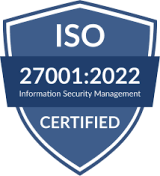Share on:
As a small business owner, you must be able to grasp your cash flow.
According to U.S. Bank data, poor cash flow management causes 82% of small business failures.
You can't manage something you don't comprehend, of course.
The majority of small business owners lose focus and start focusing primarily on the earnings that their businesses are making while ignoring cash flow.
If you don't fully comprehend cash flow, you can be unaware of how your business is doing.
And you don't want to be there.
A thorough evaluation of your financial flow reveals where money is and how it is spent.
In this post, we will be showing you a step-by-step guide on everything you need to know about your cash flow as a small business owner.
Let's dive in.
-
What Is Cash Flow
-
Types Of Cash Flow
-
How To Perform Cash Flow Analysis
-
Methods Of Calculating Cash Flow
-
Why Cash Flow Is Important To Small Business Owners.
What Is Cash Flow
Bearing in mind that cash is the lifeline of any business, here is what cash flow entails: Cash Flow is the money leaving or entering your business. Cash Flow is the representation of how much cash your business brought in or spent during a period.
It captures both cash and cash equivalents that comes in and goes out of a business.
It could be in the form of inflows; cash received, and cash outflows known as cash spent.
As a small business owner, your ability to keep an eye on your cash flow and understand how it works increases the positive outcome of your decision-making process.
A cash flow statement is a financial statement used by small business owners to capture and report on cash movement in and out of a business.
Pro Tip: When cash inflows exceed cash outflows in a business, it is a sign of the good financial health of the business.
A positive figure means cash came into the business, while a negative figure means cash left the business.
Types Of Cash Flow
To properly understand your cash flow as a small business owner, here's how cash flow is broken in
-
Cash Flow From Operations.
-
Cash Flow From Investing Activities.
-
Cash Flow From Financing Activities.
Cash Flow from Operations
The most crucial element or part of the document is Cash Flow from Operations, which you should be aware of as a small business owner who wants to comprehend how cash flow functions. It demonstrates how much money is made by the business's actual operations, which include the sale of goods and services.
Cash Flow From Investing Activities (CFIA)
As the name suggests, this refers to cash used for investments or cash realized from sales of investments.
To put it another way, it falls outside the core competencies of selling goods and services. It displays assets like machinery and equipment that have been bought or obtained by another business.
Cash Flow From Financing Activities
This is a list of cash transactions that go into funding the company's operations. Consisting of raising capital, borrowing capital, and paying back capital.
How To Perform Cash Flow Analysis
To carry out this activity, you need operating, Investing and financing cash flow statements.
The operating cash flow statement captures items such as:
-
Bill, rent or lease.
-
Cash received from sales of goods and services.
-
Purchase of inventory/supplies.
-
Interest paid on loans and interest received on loans.
In computing the Investing cash flow, the bottom line is calculated by adding the money received from the sale of assets, paying back loans or selling stock and subtracting money spent to buy stock, assets or outstanding loans.
Lastly, Financing cash flow includes money moving between a business and its owners, investors and creditors.
Methods of Calculating Cash Flow
There are two ways of calculating cash flow. They include;
-
Direct Method
-
Indirect Method
Direct Method
This comprises all of a company's cash inflows and outflows throughout a specific period. Although time-consuming, this method is more precise in capturing a company's cash status.
Indirect Method
The indirect approach begins with a company's net income and makes adjustments for non-cash items and changes in working capital.
This approach takes less time, but it is less accurate in capturing a company's true cash position.
Why Cash Flow Is Important To Small Business Owners
The reasons why cash flow is crucial or advantageous to small business owners are listed below:
-
Small business owners are capable of making well-informed choices on the budget and resource allocation for their businesses.
-
It gives small business owners advice on how to effectively manage their cash flow and helps them determine whether their businesses are making enough money to pay their debts and expenses.
-
It gives them a deeper understanding of their businesses' financial health.
-
Small business owners can determine any prospective future cash flow.
Pro Tip: Cash Flow is different from revenue and profit.
Revenue refers to the money or income earned from sales of goods and services.
Profit is the money left out after subtracting your expenses from your revenue.
Well, you don't have to be an accountant to benefit from all we have explained in this post which is where using accounting software comes in handy.
Get started with our Tyms book; an AI-automated bookkeeping and accounting app.
Last Words
In overview, Cash Flow reveals how effective a business is in managing its cash and what it spends it on.
Do you struggle with analyzing your cash flow, we believe with this step-by-step guide, you are now armed to take charge of your business!
Did you gain a thing or two? Remember to drop us a comment.


Praise Arannilewa
4 mins read


Blessing Obiora
3 mins read


